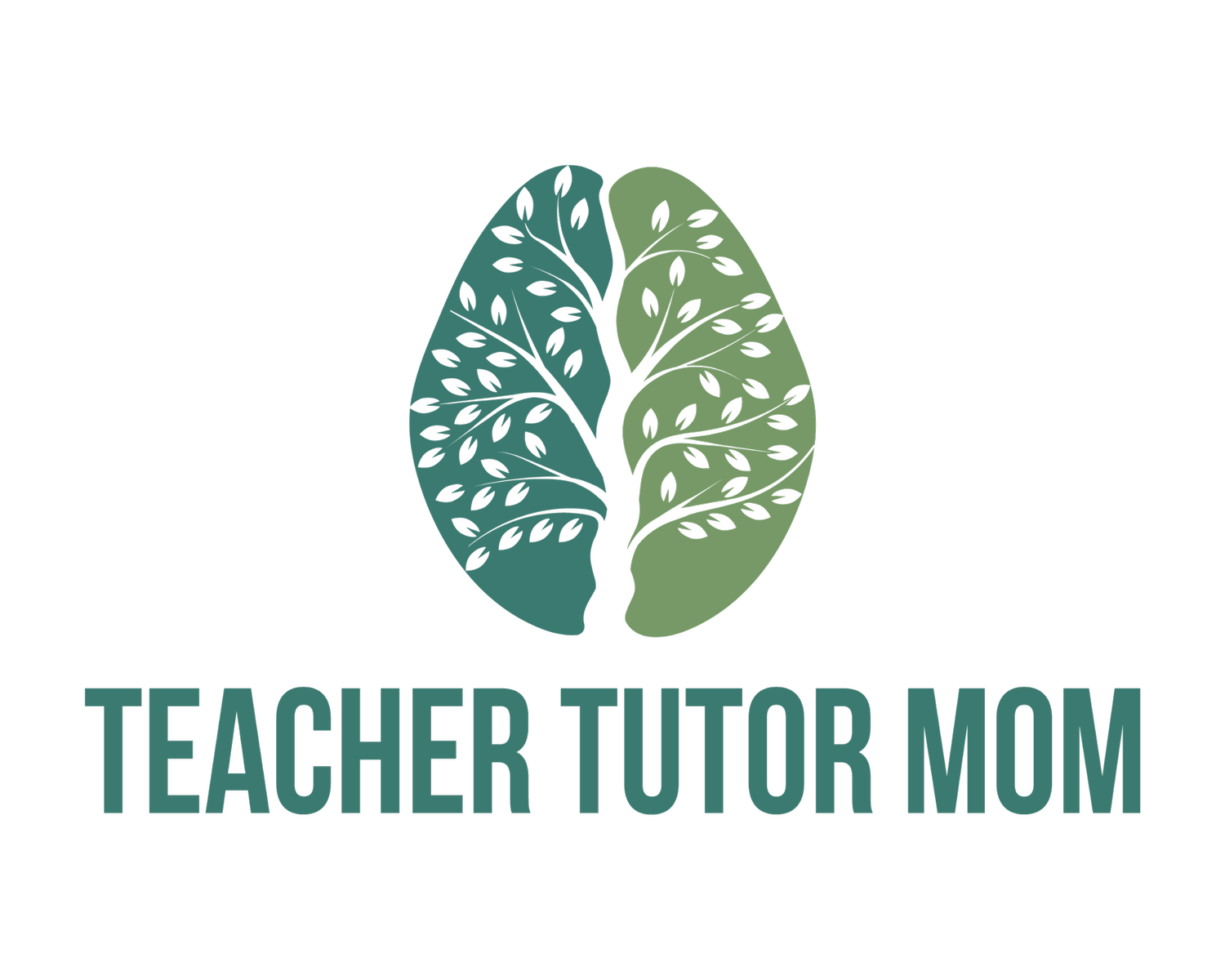A Laughing Kid is a Learning Kid
Humor Helps
I’ve been convinced for a while that if we can just make learning fun or meaningful to them then kids will learn so much more. I remember my own childhood…the things that were of interest to me - or esp. the things that were funny, I remembered for years (if not to this day).
Heads Up: The links below are affiliate links. That just means that if you purchase through one of my links, I may earn some money, at no extra cost to you. Learn more. As always, I seek to provide HONEST reviews!!
My junior year in high school, my dad helped me create a ridiculous story for my Human Anatomy midterm where I had to list all of the cranial nerves, in order, along with their functions. The story was ridiculous, and yet I aced the test! Better yet, I told my classmates right before the test started, and several of them said it helped them on the exam as well. It’s been more than 20 years now, so my memory is a bit fuzzy…but I do remember it started with an “old factory” (cue the “olfactory” nerve) and somewhere along the way there were stinky fish flying out of a window.
Think about your hobbies - does anyone have to convince you to do something you enjoy or to remember random facts that you find fascinating? If you took the time to look it up because you wanted to understand something, or learn a skill, chances are it stuck with you.
It makes me wonder if some people’s memories are better because they were allowed to explore and learn on their own, or if they are fascinated by more of the things typically taught in school, or maybe they’re just smarter. I digress…
When I taught third grade, I would teach the kids Latin vocabulary as part of our required curriculum. I still remember introducing the word “clamo,” which means “I shout” and telling the kids some ridiculously silly story about walking along the beach and a clam snapping my toe and making me shout. I would act it out in front of the entire class, and all the kids would of course laugh at their teacher making a fool of herself. But, the great thing was that it helped them actually remember that word.
I have found that bringing something fun, funny or ridiculous into a teaching situation can make all the difference in engagement of the learners and their memory in the long term. Not to mention my own enjoyment.
We’ve lost the joy
Somewhere along the way we have lost the joy in learning. Perhaps it was tested out of us in our own childhoods, and we seem to be continuing this cycle to this day.
Is there a way to make learning more enjoyable and therefore teaching more effective?
I just finished reading a book that has inspired and challenged me in my own approach to educating my children - “Free to Learn: Why Unleashing the Instinct to Play Will Make Our Children Happier, More Self-Reliant, and Better Students for Life” by Dr. Peter Gray.
According to Dr. Gray…
“A fundamental psychological principle is that anxiety inhibits learning. Learning occurs best in a playful state of mind, and anxiety inhibits playfulness.”
Have you ever noticed a kid reading a book that is far above their actual reading ability, and yet because it is something that they deeply desire to read they do it? They may not catch every word or understand every single concept mentioned in it.
But however imperfectly, they still read it. And they learn from it. And they become a better reader because they were stretched. But they were willing to be stretched, and they worked hard to be stretched in that way because they chose it...because it was something that fascinated them.
I’ve seen this even with my own kids building with Legos. Maybe the age range on the box says ages 9+, but this is seen as a challenge by my six year old. Yes, it may have some steps that his dad or I have to go back and fix so that he can continue on. However, the challenge was so worth it. And the interest in doing it is what made him capable of accomplishing it.
When I was around sixth grade I told a older mentor/friend who was a teacher that I loved to read but as soon as a book was assigned I lost most of my interest in it. I still remember the choice made it enthralling while the demand drained my interest immediately.
The joy in doing something we want to do...or in doing something challenging - something we CHOSE to challenge ourselves with - is so rewarding.
Assessment vs. Play
As I read Free to Learn, I was fascinated by the research that shows students are more creative when they aren’t being evaluated. Likewise, those who were learning a new skill did worse when evaluated, but those who were already good at it excelled when they were evaluated.
Yikes!! I think the point of giving kids tests and “assessments“ is supposed to be to actually assess what they know - at least that’s what I was taught in my college education classes. However, we often use assessment just as marks to show how good they are at something and most especially to compare them to other children, before moving them on to the next topic or grade. (See Free to Learn, Chapter 7)
Peter Grey goes on to talk about experiments done by a researcher named Isen, who experimented with manipulating peoples' moods before having them solve a serious or difficult problem. Those who had been included in the playful group, for lack of a better word, did remarkably better than those who entered the task far more seriously. (pp. 136-137)
He goes on to describe examples of children as young as four being able to solve logic problems that had previously proven too difficult for them. But when they were presented in a playful format, they were able to solve the problem correctly (p. 138).
Gray continues…
“In all of us, the capacity for abstract, hypothetical, thinking, depends on our ability to imagine situations we haven’t actually experienced, and to reason logically based on those imagined situations. This is a skill every normal child exercises regularly in play”
What are We Dealing with Now?
Although I do not agree with the evolutionary origins Dr. Gray espouses in his book, I found many of his points very thought provoking and helpful as I navigate decisions for my own children’s education.
I think this paragraph is a fantastic summary of his best points from Free to Learn:
“In schools, learning is adult-directed, not child-directed. In schools, learning is considered to be sequential, along established pathways. You have to learn A before you learn B. In schools, children’s companions are all the same age—there is no learning of skills through play with older kids, or of responsibility through play with younger ones. In schools, self-initiated play and exploration are disruptions. All these are components of the school-centric model of child development. As a result, people have come to believe that learning is fundamentally sequential and adult-directed, that the proper companions are other children of the same age, and that self-directed play and exploration are largely a waste of time for children beyond the age of four or five. Developmental psychology textbooks, for example, commonly refer to the preschool years as “the play years,” as if play naturally stops or takes a backseat after that. We have allowed the schooling system to blind us to the natural ways of children.”
So how do we move forward?
Some things just have to be learned. Whether we wait for our kids to express interest or decide at some point along the way that “it’s time,” there will be things that we teach them that don’t come naturally or inspire a deep desire to delve into the subject. I still believe that there is great merit in learning to do “hard work” even in the classroom.
So, I’m not advocating the style of unschooling that Dr. Gray seems to promote. The teacher in me just won’t let that happen. BUT, by learning from people like him, with well-researched ideas of another way to go about educating children, I have been stretched. And I find myself appreciating the possibilities a little more.
So, what can we do to help our kids?
“Repetitio mater memoriae”…during my Latin classes in college I had to learn this phrase, which means “repetition [is the] mother of memory.” And this is absolutely true.
We recall what we have repeated over and over…and many times that is what it takes to learn something. It certainly usually involves some degree of repetition.
However, think about the facts and figures that really stick in your mind. What makes them stick? Memory is certainly tied to repetition, but it also is tied to life-changing events, things that make us laugh, topics of great interest to us, and connections to other topics that we know a lot about. There are quite a few ways that we can make facts STICK in our brains.
Here are a few suggestions…
Make It Funny
Seriously think about how you remember funny stories, events, jokes, or just random obscure things because of the humor you found it the situation.
Turn It Into a Story
The ridiculous story about an old factory (olfactory nerve) that cued my teenage brain to remember all twelve cranial nerves along with their functions and in the correct order is a prime example. Or the story doesn’t have to be ridiculous- just memorable.
Put it to Music
Use common tunes like Jingle Bells and other ditties and sing a song about something you need to recall. There is a good reason tunes like that have stuck around for so many years. They are really memorable and easy to sing.
Use a Mnemonic Device (aka memory tricks)
Acrostic - Either a word in which each letter stands for a word in a series, or a phrase in which each first letter of each word reminds you of a different word with the same first letter. Often used to recall the ORDER of a list.
Examples:
Please Excuse My Dear Aunt Sally - Order of Operations in Math (Parentheses, Exponents, Multiplication, Division, Addition, Subtraction)
My Very Educated Mother Just Served Us Nine Pizzas - the 9 planets in our solar system + Pluto :-) (Mercury, Venus, Earth, Mars, Jupiter, Saturn, Uranus, Neptune, Pluto)
Every Good Boy Does Fine - the lines on the treble staff in music (E, G, B, D, F)
See this article on TheSchoolRun.com for more good ideas for memory aids.
If you really want to get into memory techniques, this article gives a thorough explanation of far more memory devices than I could ever hope to learn.
Final Thoughts
At the end of the day, the goal isn’t just to make learning fun for the sake of it—it’s to make it stick.
Whether it’s through humor, storytelling, music, or creative memory tricks, we want to help our kids actually retain what they’re learning.
And who knows? Maybe years from now, they’ll still be recalling a ridiculous story or silly song that we taught them - and better yet they’ll even remember what it was supposed to teach them!
For more articles by Peter Gray, check out these websites:




